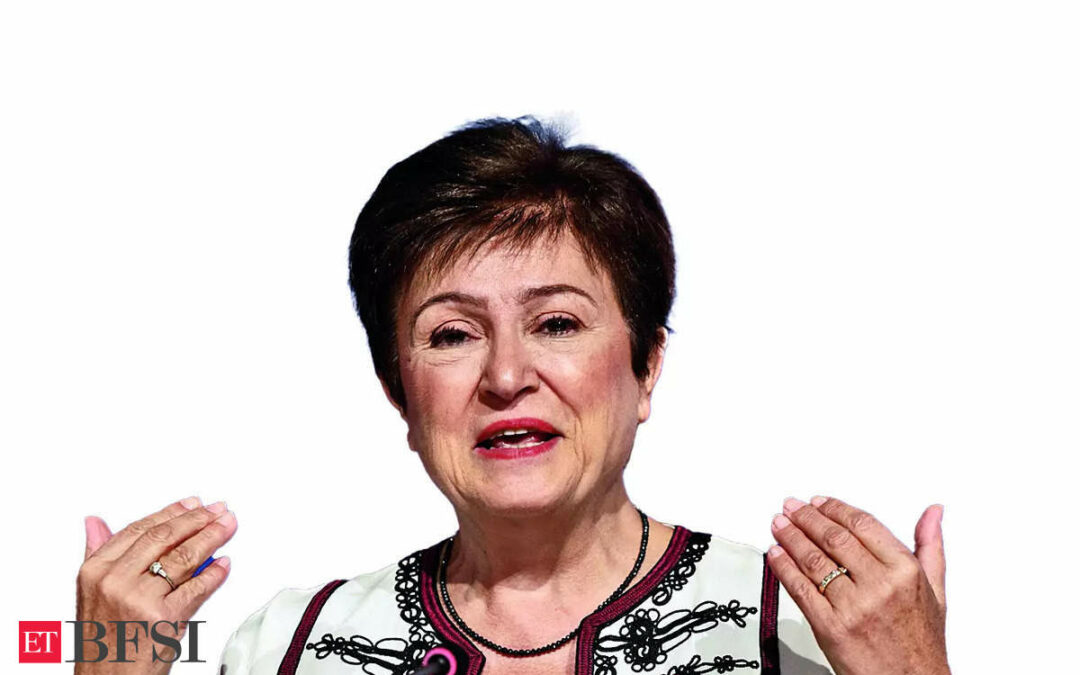Marrakech (Morocco): The Israel-Hamas conflict is a new cloud darkening the global economic outlook, International Monetary Fund (IMF) managing director Kristalina Georgieva said Thursday, mooting smartly packaged reforms to lift growth experiencing severe shocks.
“We are closely monitoring how the situation evolves, how it is affecting, especially oil markets,” Georgieva said, terming the latest conflict as “heartbreaking”.
She noted that there had been some fluctuations in oil prices and reactions in markets, but it was too early to assess the economic impact.
“Very clearly, this is a new cloud on not the safest horizon for the world economy, a new cloud darkening this horizon – and of course, not needed,” Georgieva said in her opening press conference at the annual meetings of the IMF and World Bank.
The IMF’s flagship World Economic Outlook released Tuesday projected the global economy to slow to 3% in 2023 from 3.5% in 2022 and further to 2.9% in 2024. The multilateral lender raised India’s growth forecast for FY24 to 6.3% from 6.1% estimated earlier.
“We are faced with a deepening divergence in the global economy,” she said, adding there is a need to boost medium-term growth and “collective resilience”. Georgieva said inflation had come down but was still above the target in many countries and so interest rates will have to remain higher for longer stressing on the need to safeguard financial stability.
“Strong financial supervision is critical,” she said, pointing out the rising yields.
Quota Reforms
The IMF is encouraging its membership to reach an agreement on the new quota reforms, she said, emphasising that it is essential to have more funds.
India and other developing countries have been seeking IMF quota reforms for some time, and more say and representation for developing countries.
Debt restructuring
Admitting that the Group of 20 Common Framework for debt restructuring of stressed low-income countries had been slow to deliver results, Georgieva said it was encouraging that the time for dealing with individual country cases was now getting shorter with each resolution.
She said there was growing consensus on sovereign debt restructuring discussions and issues such as the comparability of treatment of private and public creditors. She cautioned that throwing out the common framework for debt resolution would put the world in a “much less predictable environment” but admitted creative approaches were also needed, including moves to better align debt restructuring with the climate crisis.
The reporter is in Marrakech at the invitation of CII.










